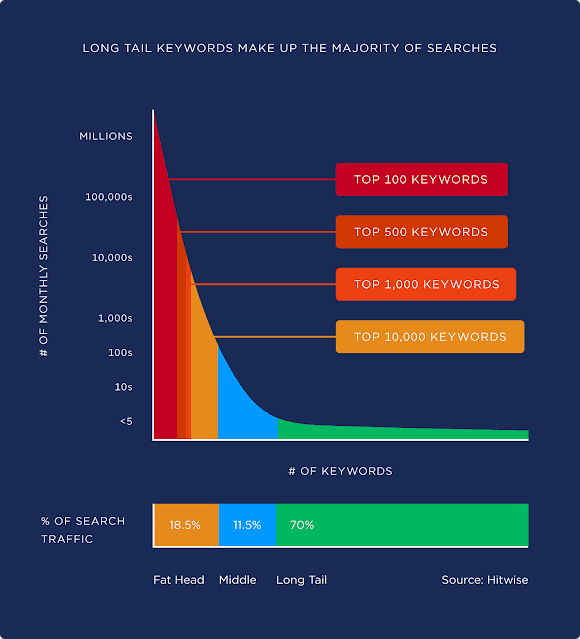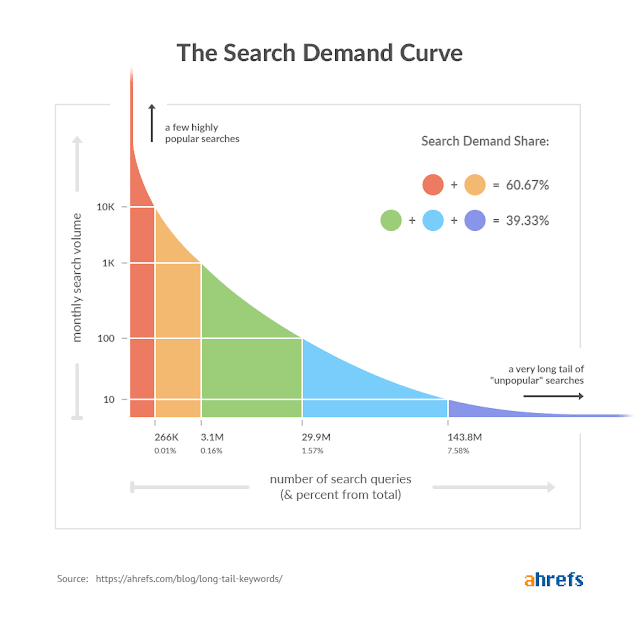Long-Tail Keywords: How To Find The Best Keywords For Your Business
If you're a professional in any industry, you should know about long-tail keywords. Long-tail keywords are more specific and descriptive than a head keyword and can be more challenging to rank for.
But the rewards are worth the effort. Long-tail keywords are more specific and descriptive than a head keyword and can be more difficult to rank for. But the tips are worth the effort.
What is a long-tail keyword?
Think of a keyword as a group of related words (like "goods", "websites", etc.). Most search engines rank these terms relative to one another, and one has to be close enough to your target audience to qualify for a search. The more closely related a keyword is to your desired target audience, the better it will rank well for that keyword.
Why do you need long-tail keywords?
It can find the answer to this question in the 'why not' factor. "Why should I do this?" You'll likely ask this question yourself if you haven't done this research before. But let's dig a little deeper into the point. Do you search for events at your office? For that matter, do you search for events in your city, in your town, or even your country? All of those events are just functions of a few keywords.
You don't need an advanced formula to determine the best keywords for the event in question. The best keywords should be specific, descriptive, and highly relevant to what you're looking for. Long-tail keywords make up a segment of the keyword results that rank the highest. Why long-tail keywords? It can be a simple question or a very complex answer.
How to find long-tail keywords?
How to find high-quality long-tail keywords? How to choose a keyword length for your website. If you're searching for a marketing professional, there is no shortage of experts on the Internet. So how do you choose the right one for your business? You want one that's big and bold has good review scores and recommendations, has experience in your industry, has links to your website and has good recommendations.
All of these things should give you a pretty good indicator of how your prospective hires might perform, should you make the hire. I'll give you a few examples of websites I've personally worked with. They all share one common theme – great customer reviews. Online Reviews These sites have very little text on them. They all take the form of a list. (1, 2, 3 etc.)
Image Source
How to use long-tail keywords in your content?
Keyword Injection: Keyword injections are variations on your main keywords that describe your specific product or service in different ways. When writing your content, try injecting keywords as follows: These are the three kinds of keyword injections. Favourited Words Customers reading your content can "favorite" your range by clicking the little heart icon that shows up in the address bar.
You can do this by placing it in a suitable place in your content, such as the opening paragraph or first paragraph. A great way to put keywords in your content. As soon as possible is by including custom links in your articles or e-books. For example, let's say you write a post about legal issues when people sign up to your website for a podcast.
Successful case studies of using long-tail keywords.
On ReviewGraph, we've analyzed a lot of keyword data, and one thing we've noticed is that long-tail keywords are driving a lot of traffic. That's excellent news for sellers who've identified the right words for their business. This article will give you an in-depth look at long-tail keywords, how to find them, and how you can build a better company around long-tail keywords.
What Is A Long Tail Keyword? There are two parts to a long tail keyword: Context Targeted Use In simple terms, the context of a long-tail keyword is the minimum or maximum length of text in the sentence. If you're looking for a specific type of content, then the search function is the place to go. It helps you find what you're looking for within seconds.
Conclusion
Long-tail keywords can be a complicated part of SEO. Keyword optimization and keyword research are crucial for driving traffic to your website and increasing your SEO. You might not know every little trick for getting high search traffic, but you can learn as much as you can, and you will soon be making strides to keep your rankings up.





0 Comments